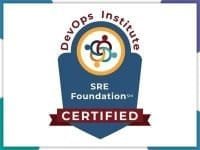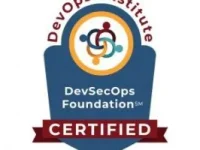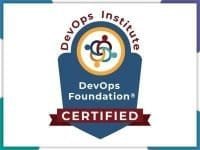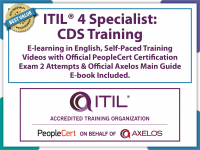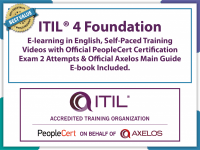As companies deploy code faster and more often than ever, new vulnerabilities are also accelerating. When the boss says, “Do more with less”, DevOps practices adds business and security value as an integral, strategic component. Delivering development, security, and operations at the speed of business should be an essential component for any modern enterprise.
Course topics covered include how DevSecOps provides business value, enhancing your business opportunities, and improving corporate value. The core DevSecOps principles taught can support an organizational transformation, increase productivity, reduce risk, and optimize resource usage.
This course explains how DevOps security practices differ from other approaches then delivers the education needed to apply changes to your organization. Participants learn the purpose, benefits, concepts, vocabulary and applications of DevSecOps. Most importantly, students learn how DevSecOps roles fit with a DevOps culture and organization. At the course’s end, participants will understand “security as code” to make security and compliance value consumable as a service.
No course would be complete without practical application and this course teaches the steps to integrate security programs from the developers and operators through the business C-level. Every stakeholder plays a part and the learning material highlights how professionals can use these tools as the primary means of protecting the organization and customer through multiple case studies, video presentations, discussion options, and exercise material to maximize learning value. These real-life scenarios create tangible takeaways participants can leverage upon their return to the home office.
This course positions learners to pass the DevSecOps Foundation exam. Learners will receive a voucher for a web-based exam which can be taken at their convenience.
COURSE OBJECTIVES
The learning objectives include a practical understanding of:
- The purpose, benefits, concepts, and vocabulary of DevSecOps
- How DevOps security practices differ from other security approaches
- Business-driven security strategies and Best Practices
- Understanding and applying data and security sciences
- Integrating corporate stakeholders into DevSecOps Practices
- Enhancing communication between Dev, Sec, and Ops teams
- How DevSecOps roles fit with a DevOps culture and organization
AUDIENCE
The target audience for the DevSecOps Foundation course are professionals including:
- Anyone involved or interested in learning about DevSecOps strategies and automation
- Anyone involved in Continuous Delivery toolchain architectures
- Compliance Team
- Business managers
- Delivery Staff
- DevOps Engineers
- IT Managers
- IT Security Professionals, Practitioners, and Managers
- Maintenance and support staff
- Managed Service Providers
- Project & Product Managers
- Quality Assurance Teams
- Release Managers
- Scrum Masters
- Site Reliability Engineers
- Software Engineers
- Testers
LEARNER MATERIALS
- Digital Learner Manual (excellent post-class reference)
- Participation in exercises designed to apply concepts
- Sample documents, templates, tools and techniques
- Access to additional sources of information and communities
PREREQUISITES
Participants should have baseline knowledge and understanding of common DevOps definitions and principles.
CERTIFICATION EXAM Successfully passing (65%) the 60-minute examination, consisting of 40 multiple-choice questions, leads to the candidate’s designation as DevSecOps Foundation (DSOF) certified. The certification is governed and maintained by DevOps Institute.
COURSE OUTLINE
- Realizing DevSecOps Outcomes
- Origins of DevOps
- Evolution of DevSecOps
- CALMS
- The Three Ways
- Defining the Cyberthreat Landscape
- What is the Cyber Threat Landscape?
- What is the threat?
- What do we protect from?
- What do we protect, and why?
- How do I talk to security?
- Building a Responsive DevSecOps Model
- Demonstrate Model
- Technical, business and human outcomes
- What’s being measured?
- Gating and thresholding
- Integrating DevSecOps Stakeholders
- The DevSecOps State of Mind
- The DevSecOps Stakeholders
- What’s at stake for who?
- Participating in the DevSecOps model
- Establishing DevSecOps Best Practices
- Start where you are
- Integrating people, process and technology and governance
- DevSecOps operating model
- Communication practices and boundaries
- Focusing on outcomes
- Best Practices to get Started
- The Three Ways
- Identifying target states
- Value stream-centric thinking
- DevOps Pipelines and Continuous Compliance
- The goal of a DevOps pipeline
- Why continuous compliance is important
- Archetypes and reference architectures
- Coordinating DevOps Pipeline construction
- DevSecOps tool categories, types and examples
- Learning Using Outcomes
- Security Training Options
- Training as Policy
- Experiential Learning
- Cross-Skilling
- The DevSecOps Collective Body of Knowledge
- Preparing for the DevSecOps Foundation certification exam


